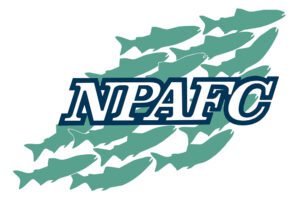
A workshop on salmon abundance and distribution trends has been scheduled by the North Pacific Anadromous Fish Commission (NPAFC) for June 4-5 in Richmond, B.C., with both in-person and virtual accessibility.
The tentative program and abstracts, which were announced April 12, are available on the NPAFC’s website, https://workshop.npafc.org/.
While the workshop is free, space is limited, and registrations are being accepted on a first come, first served basis. Details on how to register and make hotel reservations by the cut-off date, May 9 are available on the workshop’s website.
NPAFC officials identified as research objectives of the organization’s science plan as improving knowledge of the relative biomass, distribution, migration and fitness of Pacific salmon in the ocean and understanding causes and anticipating changes in the production of Pacific salmon and the marine ecosystems producing them.
The commission said improved understanding of the mechanisms that regulate distribution and abundance of Pacific salmon will promote the conservation of anadromous populations in the North Pacific Ocean and also allow for better projections, or at least include realistic uncertainty given climate change, of Pacific salmon production trends in the future.
Such understandings also will enhance sustainable fisheries management, food security and economic security in member nations, the commission said.
The workshop’s three sessions will begin with Pacific salmon and steelhead trout in a changing north Pacific Ocean, followed by how new technologies and analytical methods are advanced and applied to salmon research. Both sessions are to be moderated by Ed Farley, program manager for the ecosystem monitoring and assessment program at the Alaska Fisheries Science Center in Juneau.
The third session on new results from the International Year of the Salmon Surveys, is being moderated by Jackie King, a research scientist at the Pacific Biological Station, for Fisheries and Oceans Canada.
